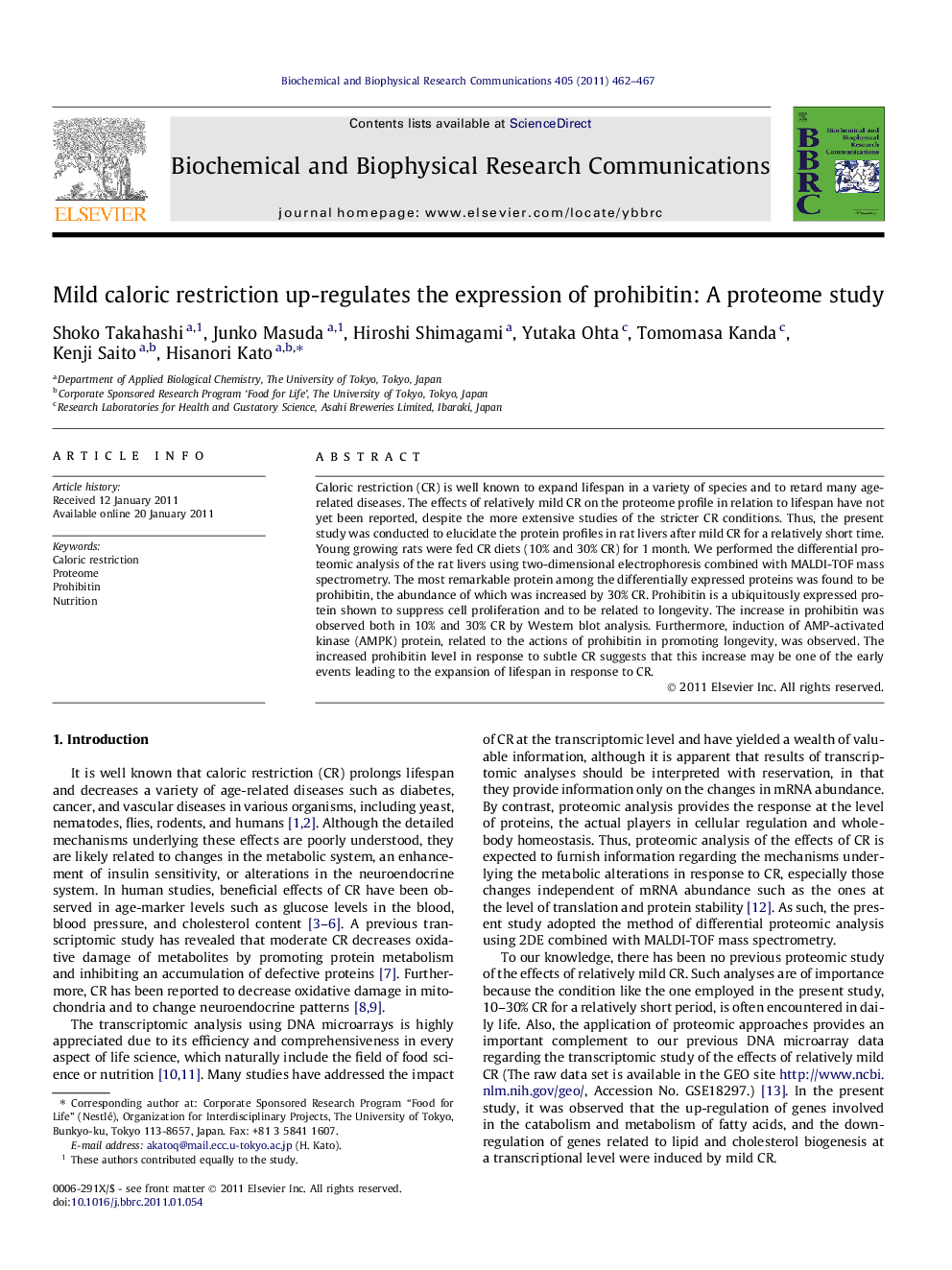| Article ID | Journal | Published Year | Pages | File Type |
|---|---|---|---|---|
| 1930687 | Biochemical and Biophysical Research Communications | 2011 | 6 Pages |
Caloric restriction (CR) is well known to expand lifespan in a variety of species and to retard many age-related diseases. The effects of relatively mild CR on the proteome profile in relation to lifespan have not yet been reported, despite the more extensive studies of the stricter CR conditions. Thus, the present study was conducted to elucidate the protein profiles in rat livers after mild CR for a relatively short time. Young growing rats were fed CR diets (10% and 30% CR) for 1 month. We performed the differential proteomic analysis of the rat livers using two-dimensional electrophoresis combined with MALDI-TOF mass spectrometry. The most remarkable protein among the differentially expressed proteins was found to be prohibitin, the abundance of which was increased by 30% CR. Prohibitin is a ubiquitously expressed protein shown to suppress cell proliferation and to be related to longevity. The increase in prohibitin was observed both in 10% and 30% CR by Western blot analysis. Furthermore, induction of AMP-activated kinase (AMPK) protein, related to the actions of prohibitin in promoting longevity, was observed. The increased prohibitin level in response to subtle CR suggests that this increase may be one of the early events leading to the expansion of lifespan in response to CR.
Research highlights► Proteomic analysis was performed to elucidate physiological alterations induced by mild CR. ► The results suggest good reproducibility and possibility to grasp the important response of CR. ► The increase in prohibitin abundance was observed in CR groups by proteomic analysis. ► We hypothesize that prohibitin might be involved in the longevity induced by CR.
